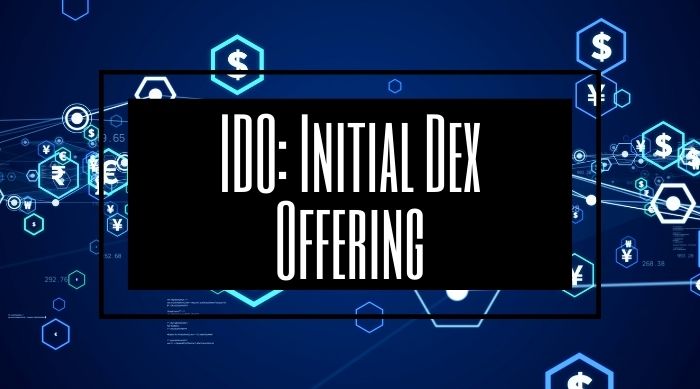In the cryptocurrency world, there are some crypto analogs to traditional investing. One of those is the initial coin offering or ICO, which is offered in the spirit of a traditional Initial Public Offering or IPO that offers a new stock or investment opportunity to the public (hence the name.) There are a few different types of these offerings with crypto tokens, currency, and NFTs.
Types Of Initial Offerings

An ICO happens when a crypto project offers a new currency to investors and/or the general public and can include free cryptocurrency drops to those who qualify (based on the project’s guidelines) and other promotional perks. Sometimes they don’t include anything extra.
There are also initial gaming offerings (IGOs) and initial exchange offerings (IEOs).
In each case, the offerings are an event or process where a new token, NFT, or game is declared “open for business,” ready to be bought, sold, or traded.
The “O” in “ICO” or “IGO” is indicative of a new project rather than an existing one offering a new variable on a current token, NFT, platform, exchange, etc. And then there’s something called the initial dex offering, which differs from an ICO in several ways. One of the most important initial differences?
The IDO
An initial coin offering is called an ICO because the coin is new–the name refers to the object, so to speak. An initial dex offering or IDO does not refer to starting up a new decentralized exchange but rather how a new coin or token is provided to the public using one to make the offering.
The new token is made available through a decentralized exchange and not through centralized ones such as:
Examples of Decentralized Exchanges
An IDO could happen through decentralized exchanges such as (but not limited to):
- Kyber
- IDEX
- Balancer
- DEX.ag
- Uniswap
- SushiSwap
What Is an Initial Dex Offering?
Initial dex offerings or IDOs, happen when a project offers a token or currency via a decentralized exchange or DEX. You can plan an IDO for any type of crypto project imaginable from currency to new music, even gaming NFTs.
Like initial coin offerings, a project that chooses the IDO approach could get support from investors, but unlike an initial public offering or IPO (the traditional investing practice that brings a new stock opportunity) when you invest in an initial dex offering you are not purchasing a membership or stake in the company.
That is a different approach from how centralized crypto projects operate. One good example; if you purchase Bored Ape Yacht Club NFTs, you get voting rights in the project as part of that sale. But your purchase via an initial dex offering won’t confer the same privileges. Not unless they are specifically mentioned in the terms and conditions of the project, but that may be more unusual for IDOs, depending. Your experience may vary.
IDO Benefits
What’s the advantage of an IDO if you don’t get those voting rights or other privileges?
The nature of an IDO means you may be able to trade your tokens or other assets right away and there may be lower fees for listing a token for sale. In general (and your experience may vary) you may find the options via an IDO to be more affordable. And there may not be the same kinds of restrictions you would get as a project owner if you tried to run the same offering via a centralized exchange.
How IDOs Differ From Projects On Centralized Exchanges
It is true that you could get immediate trading rights when purchasing through a centralized exchange instead of an IDO, but as other crypto writers have pointed out, there are some important ground rules in the centralized exchanges that may not necessarily be present when investing, buying, or selling on an IDO.
Some of those rules? If you do an offering on a centralized exchange you may be required to set aside a certain portion of the crypto or other assets to pay the exchange for partnering with your offering. You may not be allowed to publicize your project or tokens on exchanges viewed as direct competition, and you may not be able to control all the details of the sale.
Then there is the matter of how much you can realistically fundraise using an IDO. Some sources hold that an initial dex offering may be less scalable and provide the ability to raise funds but not at the level that might be realized through a centralized exchange.
ICO tokens may be minted after the initial sale is completed and there may be higher costs and time invested than for IDOs which can feature tokens minted at any time. Initial coin offerings often make their debut with a certain amount of tokens set aside for insiders, favored investors, members of the project, etc.
By comparison, initial dex offerings may feature a more equitable approach to how those tokens are distributed.
Experience Counts
And if you want to launch a crypto project on a decentralized exchange but don’t have the experience, the length of time it takes to learn the ropes may be far greater than when using a centralized exchange.
When you launch a project on a centralized exchange, the marketing and PR for that project will be very different than for a decentralized version or IDO.
Why? Because when you partner with a centralized exchange you may agree to share the burden of all that marketing. But a decentralized version means the project shoulders all the responsibility for spreading the word. Those who aren’t experienced in marketing projects on their own may struggle to keep up as they learn by doing.
IDO Launch Pads
Here are some of the bigger and best IDO launchpads.
- BoostX: Enables crypto launches on a variety of blockchains, including Binance Smart Chain, Ethereum, Polygon, and Avalanche.
- Bounce: A decentralized auction solution for anyone interested in creating, designing, connecting, collecting, and trading various assets, tokens, and NFTs.
- BSCPad: First decentralized IDO platform on Binance.
- DAO Maker: Upcoming and active top tier IDOs & crypto launchpad offerings.
- GameFi: A launchpad dedicated to gaming and NFT projects
- Polkastarter: A Protocol built for cross-chain token pools and auctions, enabling projects to raise capital on a decentralized and interoperable environment based on Ethereum, Binance SmartChain, Matic Network and other blockchains.
- Seedify.fund: A community-driven seed stage fund, incubator and launchpad to empower the next big things on blockchain.
- SOLPAD: A multichain IDO platform for Solana.
- Superdao: Quickly start a DAO.
- TrustPad: Launches hand-picked high-quality projects on the Blockchain.
Joe Wallace has covered real estate and financial topics, including crypto and NFTs since 1995. His work has appeared on Veteran.com, The Pentagon Channel, ABC and many print and online publications. Joe is a 13-year veteran of the United States Air Force and a former reporter for Air Force Television News.


